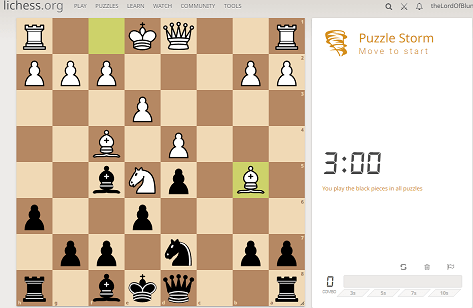When writing about Francesca Gino, the Harvard honesty researcher who was exposed for mass fraud, I only briefly touched on something important. Many of the conclusions that these pseudo-intellectuals claim their studies support could easily have alternative explanations. In many cases, the alternative hypothesis for the results ought to be the default hypothesis.
To quote myself:
All studies, even the ones that have non-fraudulent data, can only show what happened in the study environment. Part of that involves the subjects knowing that they are a part of a study. This can have massive implications, especially for psychological studies. Once people know they are being watched their behaviour will undoubtedly change. For instance, I would not be surprised if people in both groups tell the researchers that they really like the soaps so as to come across as more hygienic.
When writing that piece I stumbled upon “The Chocolate and Radish” study. It’s a fantastic example of batshit crazy conclusions that are then taken seriously by the entire field of pseudo-intellectuals. Conclusions that only make sense if we assume that the patients are all autistic automatons with no emotions at all towards the researchers.
Back in 1996, Roy Baumeister conducted an experiment that was downright evil.
Together with his former Case Western Reserve University colleagues Ellen Bratslavsky, Mark Muraven, and Dianne Tice, he examined the effect of a tempting food challenge designed to deplete participants’ willpower through the awful power of an unfulfilled promise of chocolate!
Spoiler warning: It actually tested something else entirely.
In the first part of the trial, Baumeister kept the 67 study participants in a room that smelled of freshly baked chocolate cookies and then teased them further by showing them the actual treats alongside other chocolate-flavored confections. While some did get to indulge their sweet tooth, the subjects in the experimental condition, whose resolves were being tested, were asked to eat radishes instead. And they weren’t happy about it. As the scientists noted in their Journal of Personality and Social Psychology paper two years later (PDF), many of the radish-eaters “exhibit[ed] clear interest in the chocolates, to the point of looking longingly at the chocolate display and in a few cases even picking up the cookies to sniff at them.”
After the food bait-and-switch, Baumeister’s team gave the participants a second, supposedly unrelated exercise, a persistence-testing [impossible to solve] puzzle. The effect of the manipulation was immediate and undeniable. Those who ate radishes made far fewer attempts and devoted less than half the time solving the puzzle compared to the chocolate-eating participants and a control group that only joined this latter phase of the study. In other words, those who had to resist the sweets and force themselves to eat pungent vegetables could no longer find the will to fully engage in another torturous task. They were already too tired.
Were they tired, or were they rightfully pissed at the experimenters for putting a bunch of fresh baked cookies in front of them and then wagging their fingers at them and telling them to eat only the radishes?

Social psychology, which is the field in question, might be the single worst example of a field where the psuedo-intellectuals in charge just draw whatever insane conclusions they feel like from the data they have, when they aren’t just making up the results like Harvard’s Francesca Gina. Frankly, if you’re free to draw whatever batshit crazy conclusions you want, you don’t need to fake the data in the first place.

Roy Boumeister, the professor in charge.
I really can’t stress enough how ludicrous this conclusion is. Imagine that you were a part of this experiment. You were the one who was sat down in a room, hungry. They bring out some great smelling cookies and some radishes. Then they wag their finger at you and tell you to only eat the radishes, and not the delicious cookies that were within your reach. The fags running the experiment watch you through all this and take notes. Then the fake scientists conducting this clown fiesta take the cookies away, place an unsolvable puzzle in front of you, and tell you to solve it.

Will your response be: “Golly gosh darnit, I just don’t have the willpower reserve to keep at this puzzle since I used it all up resisting the cookies like a good boy.”
Or will your response be: “Fuck you, faggot. Give me those cookies and fuck your gay puzzle.”

Let’s say that you’re in the group that got to eat the presumably delicious cookies. The experimenters come in, give you radishes and cookies, and tell you to eat whatever you want. They then place the unsolvable puzzle in front of you, and tell you to get crackin’.
Is your response going to be: “Well gee, I certainly have a lot of willpower to try at this puzzle because I didn’t have to deplete any of it in the previous room.”
Or is your response going to be: “Oh, the nice people who just gave me cookies now want me to solve this puzzle. Sure, why not?”

It’s not even about the cookies, it’s the principle of the matter. You could hate cookies, but someone offering you some is a nice gesture, and someone wagging their finger at you and telling you not to eat any is an intolerable little cunt. What this study “found” was not the revolutionary concept of willpower depletion, but rather a confirmation of the entirely banal observation that when you antagonize people they’re less likely to do whatever pointless, tedious, and impossible task that you ask them to do next.
You could have gotten the same results without the cookies. Just walk in, whip your dick out, and urinate on the faces of half the test subjects. Then tell them “solve this puzzle, faggot,” and see how long they get at it. Something tells me they’ll work less hard on solving that one, and it’s not because their “willpower was depleted.”
Hell, you could have gotten the same result just by being rude to them or kind. Ask them to solve the puzzle nicely, versus be an abrasive little cunt. Does that prove that people being cunts to us “depletes our willpower?” No, and it’s insane to think so.

What would happen if we made the cookies smell delicious, but actually taste like ass? Would that affect the results versus cookies that taste delicious? It probably would, although there is no way to measure or predict the outcome of this variable.
What if some of the test subjects figure out that you’re deliberately giving them bad tasting cookies and get even more pissed than the group that was denied cookies altogether? What if some of them think that the experimenters made the cookies themselves and messed up, which they find endearing, so they try extra hard on the puzzle so as to not be rude and later tell the experimenters that the cookies were delicious?

The problem with human psychology is that it’s complicated and individualized. That’s why there is value in being able to read the room. Everyone knows that you have to somewhat modulate your behaviour to your environment. Everyone except social psychologists, who pretend that people are just mindless robots whenever it’s convenient for their TED-talk tier theories of human behaviour.
Besides that, there is almost no way to study people without them knowing that they are being studied, and changing their behaviour accordingly.
In the psychology world, the key finding of this seemingly silly study was a breakthrough: self-control is a general strength that’s used across different sorts of tasks — and it could be depleted. This proved that self-regulation is not a skill to be mastered or a rote function that can be performed with little consequence. It’s like using a muscle: After exercising it, it loses its strength, gets fatigued, and becomes ineffectual, at least in the short-term.
Think about how insane this is. A stupid study found that people who experimenters antagonize are less likely to do impossible, menial tasks afterwards. This same study is considered a revolutionary finding that proves that willpower is a finite resource.
Perhaps more importantly, this research would go on to serve as the foundation for at least 1,282 other studies involving everything from consumer to criminal behavior. It would, for instance, help show why people are energized by positive messages, more likely to engage in retail therapy when brokenhearted, and better off tricking themselves into eating less than willfully dieting.
Again, this is not some obscure, random study from the 90’s. This is one of the most famous and celebrated social psychology studies of all time, and it’s utter garbage with a batshit insane conclusion.

Again, I’m not exaggerating this study’s importance. This trash is a foundational study in the psuedo-scientific field of social psychology.
Nearly 20 years ago, psychologists Roy Baumeister and Dianne Tice, a married couple at Case Western Reserve University, devised a foundational experiment on self-control. “Chocolate chip cookies were baked in the room in a small oven,” they wrote in a paper that has been cited more than 3,000 times. “As a result, the laboratory was filled with the delicious aroma of fresh chocolate and baking.”
It’s been cited more than 3,000 times by other pseudo-intellectuals in the field. It’s also been referenced in about a bajillion of those annoying pop-sci videos on YouTube who talk about willpower or “ego depletion”.
One garbage study lead to hundreds. We have one particularly egregious examples of the subsequent nonsense below.
With Baumeister’s counsel, Hagger’s team settled on a 2014 paper from researchers at the University of Michigan. That study used a standard self-control task. Subjects watched as simple words flashed on a screen: level, trouble, plastic, business, and so on. They were asked to hit a key if the word contained the letter e, but only if it was not within two spaces of another vowel (i.e., they had to hit the key for trouble but withhold their button-press for level and business). In the original study, this exercise of self-control produced a strong depletion effect. The subjects performed markedly worse on a follow-up test, also done on the computer.
Have these people never heard of good old fashioned fatigue?

It’s downright comical how steadfastly they ignore what ought to be the default hypothesis, in favour of some bizarre gibberish. First it was “antagonized people don’t want to do what you ask,” and now it’s that mental fatigue doesn’t exist.
Mental fatigue is a well understood phenomenon, so much so that it doesn’t need to be studied. I myself am often quite tired after finishing a long article, and the same effect can be gotten quite quickly just by playing some rounds of Lichess Puzzle Storm. When you’re focusing intently on something that requires brainpower, you get tired, simple as.

Why the hell is the default hypothesis in this experiment that you’re not actually tired, but that your willpower has been depleted because you had to force yourself not to hit certain words when you felt that you wanted to?
This would be like testing “ego depletion” by sending the subjects to the gym. You get them to do some squats, and you “find” that they do fewer squats on successive sets. You then conclude that there’s no such thing as physical fatigue. Instead, each successive squat depletes the willpower of the subject, and eventually you don’t have enough willpower to do another squat.

If that sounds like an absurd conclusion, it’s because it is. The alternative hypothesis should be the default hypothesis.
In his lab, Baumeister told me, the letter e task would have been handled differently. First, he’d train his subjects to pick out all the words containing e, until that became an ingrained habit. Only then would he add the second rule, about ignoring words with e’s and nearby vowels. That version of the task requires much more self-control, he says.
Second, he’d have his subjects do the task with pen and paper, instead of on a computer. It might take more self-control, he suggested, to withhold a gross movement of the arm than to stifle a tap of the finger on a keyboard.
The e-word study failed to replicate. Roy Baumeister, the father of ego depletion, comes up with copes as to why, and they’re so absurd that they border on parody. Apparently the effect of “ego depletion,” ostensibly a powerful and all explaining phenomenon, is actually so subtle that it disappears when you go from pencil and paper to computer screens.

Still, the issue here is not the replication, but rather the absurdity of the conclusion. I strongly suspect that if you antagonized the subjects the way that Baumeister antagonized his subjects, they’d be less inclined to continue on with your impossible puzzle. However, the theory is on such shaky ground that when the studies are done in slightly different ways they often get massively different results.
This is one of the most important “findings” of social psychology.
HBR:
Michael Inzlicht, a professor of psychology at the University of Toronto and the principal investigator at the Toronto Laboratory for Social Neuroscience, believes willpower is not a finite resource but instead acts like an emotion. Just as we don’t “run out” of joy or anger, willpower ebbs and flows based on what’s happening to us and how we feel. Viewing willpower through this lens has profound implications.
That may or may not be true, but it certainly fits into my observations of my own behaviour. Slacking off breeds more slacking off. Hard work breeds more hard work. One potato chip invites the whole bag. Video games, which I almost never play anymore, are the worst of all worlds, being unproductive and mentally draining. Occasionally this isn’t true, but most of the time it is.
Sure, at the end of a hard day many people just want to veg out. At the end of a hard gym session, most people don’t want to run a marathon. Everything that “Ego Depletion” supposedly explains can be explained better by good old fashioned mental and physical fatigue. Ultimately, the only truth to this “revolutionary” finding is that it is a good idea to remove as many distractions from your working environment as possible, something that literally everyone on the earth already knew.

It is amazing how absurdly flawed these celebrated studies are, and we haven’t even gotten to the totally fraudulent (((Stanely-Milgram Experiment))) that FTN covered. Then there’s the thoroughly deboonked (((Stanford Prison Experiment))), and many others.
I wanted to start with a relatively apolitical experiment to show how blatantly absurd and arbitrary the conclusions in this fake scientific field are, even when there is no (((message))) to push. Something to keep in mind whenever you see “JeQueerus scores lower on the SAT than Peter, that MUST mean systemic Aryan Supremacy, and not that JeQueerus and LaDanian are dumb.” Or “Blacks make up more prisoners per capita, that MUST me systemic Aryan Supremacy instead of LaQuan committing more crimes.”














What if the real experiment was to see how gullible/willfully blind university administrators and/or juried publications are?
I would imagine that, ultimately, an academic’s gullibility/blindness level depends on how much he/she/they/them relies on his/her/their pay check. IOW, academe is chock full of intellectual mercenaries, who sell their brains to the highest bidder. So burning all the universities down would result in significantly less psy-op shit, and more intellectual freedom, more honest discourse, more truth, more relevance, etc.